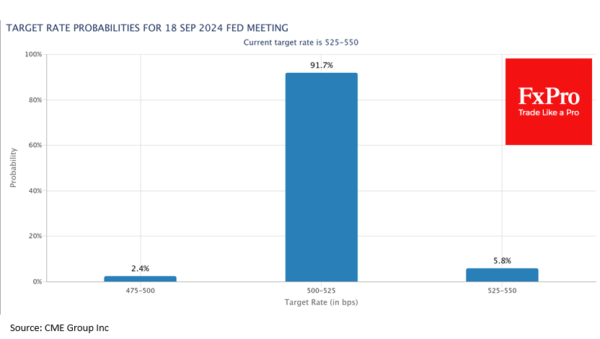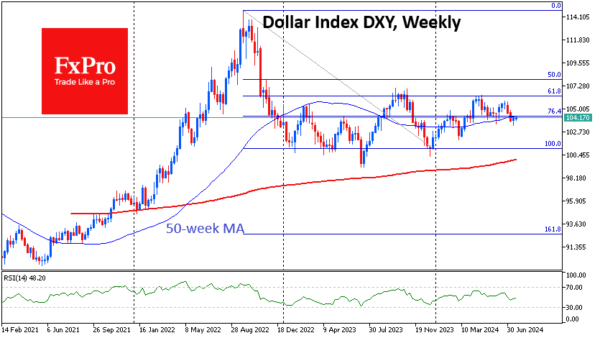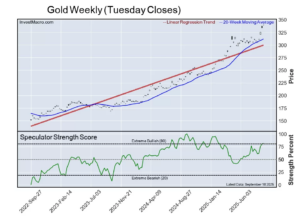Last week, the dollar index regained some of its losses from the previous four weeks, but technically, it looks like short-term profit-taking by sellers before a new downward momentum.
The US dollar has been under pressure since late June as the Fed noted progress in reducing inflation. Money markets readily accepted this signal, giving a 94% probability of a rate cut in September versus 66% a month earlier and just 46% about two months ago. These changes are causing short-term bond yields to fall, reducing interest in the dollar.

Changes in expectations have taken about 2% away from the dollar over the past month. But on this downward path, the DXY has taken several technical levels, showing increasing signs of moving into a downward trend.
Sustained pressure on the dollar since early July has knocked it out of the upward channel formed by the lows of December and March and the highs of February and April. Moreover, a descending corridor is formed, with the upper boundary passing through the peaks of April and June and the lower boundary passing through the lows of June and July.

At last week’s lows, DXY has stepped up from the lower boundary of the trading range, removing some of the local oversold conditions.
For the past ten days, the rise in the Dollar Index has encountered resistance near the 200-day moving average. The 50-day moving average is pointing downwards and threatens to form a “death cross” — a meaningful bear sign — next month.
Thus, the latest bounce looks like cautious profit-taking, with no signs of buying enthusiasm on the downturn.

If the 200-day resistance proves impossible for the bulls, the dollar index may turn down towards the intermediate target at 102.3 (-1.7% from the current level) in the March lows. More important now looks to be the 101 (-2.9%) area, where several of last year’s lows are centred. Taking this support would effectively break the dollar bull run in 2021–2022, sending the DXY into the 90-92 area.









